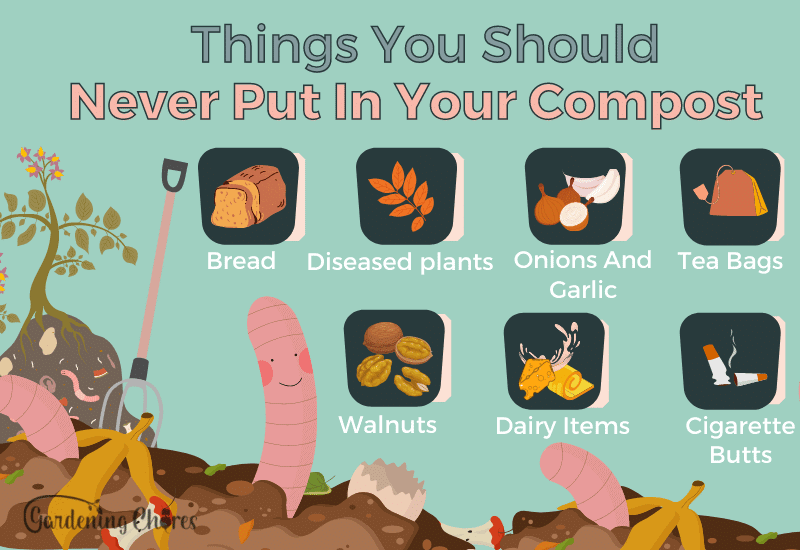
Compost is perhaps the most amazing soil amendment you can add to your garden. It is a great way to take your yard and kitchen waste and turn it into rich, healthy earth that builds the soil, feeds the plants, and makes the environment better.
However, there are a number of things that should never make it into the compost pile. Putting the wrong item in your compost bin can not only lead to inefficient biodegradation, but also contamination of the entire pile. A waste of all this waste!
Some things, such as chemicals and dangerous substances are fairly obvious, but there are few waste that might surprise us that can either interfere with the composting process or contaminate the whole batch.
So avoid putting oil and grease in it, but also charcoal ash (after a barbecue), vacuum cleaner dust, cat litter, oil, or anything that is rags and textiles.
Let’s look at all the things that you need to be wary of when making our compost heap.
Compost – What is it?
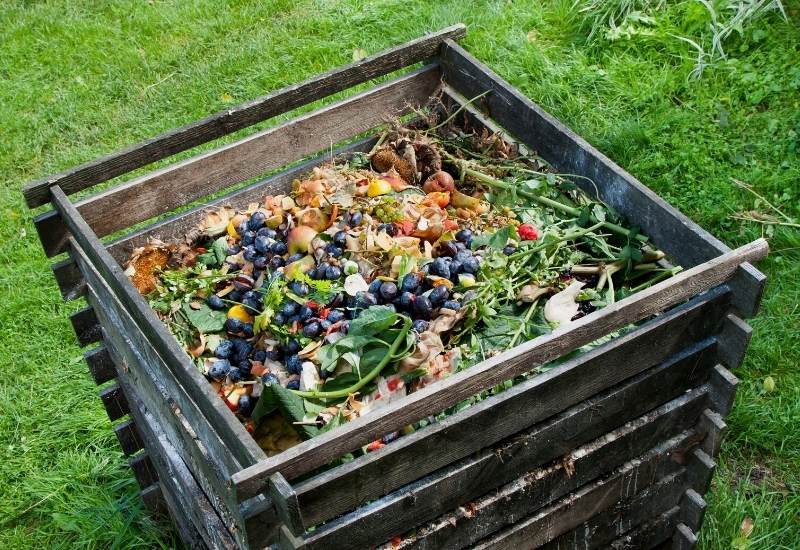
Compost is the process of decomposing raw plant and animal matter and turning it into rich, fertile humus for your garden.
It is an aerobic process where heat, oxygen, and moisture create an environment teeming with microorganisms that break down the organic matter. The finished product is a rich, dark, sweet smelling soil that is incredibly fertile.
Benefits Of Compost
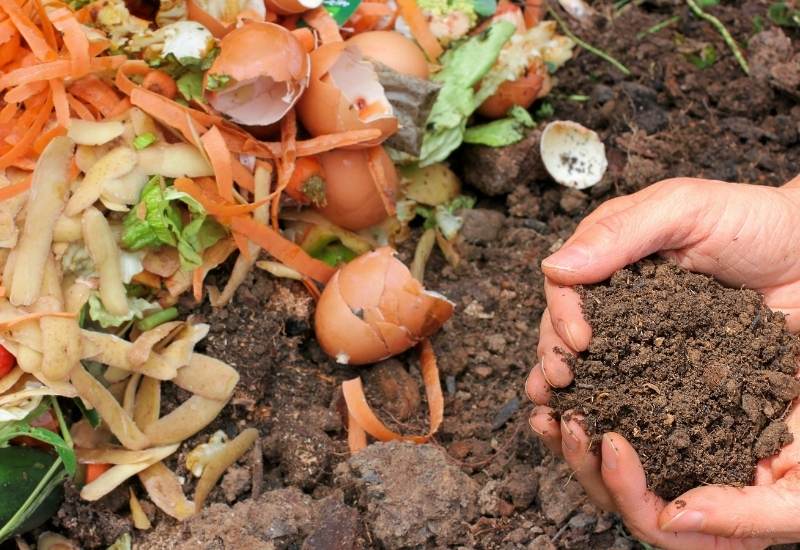
Early written references to compost date back to the ancient Romans where the leftovers from the fields and barns were piled up and left to break down,
but it is safe to assume that people throughout history have known the benefits of returning our organic ‘waste’ back into the land.
There is no downside to adding compost to the soil and here are just a few reasons to make your own compost and add it to your garden:
How To Compost At Home
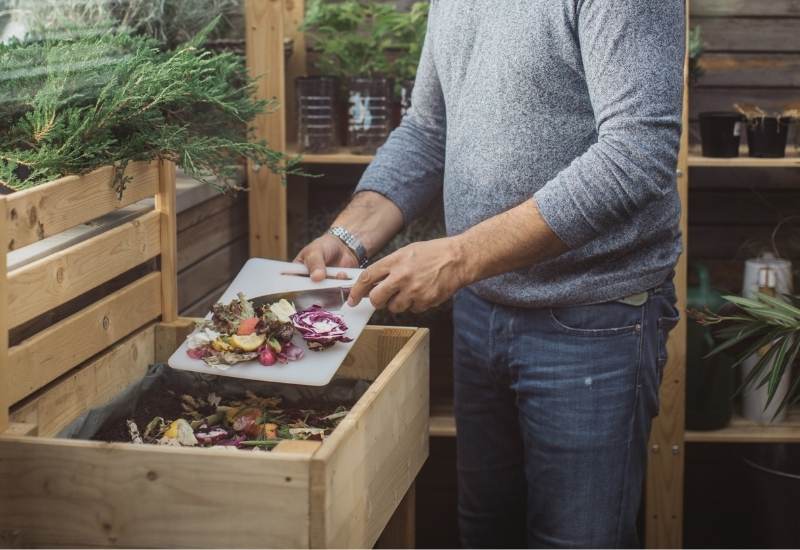
Early composters simply piled everything in large heaps and waited a year or so for it to decompose. Nowadays, composting has almost become a science of its own with specialized machines, chemical activators, and pre-made bins.
But don’t be discouraged. Composting in the home garden is simple and it is easy to get started.
There are many different ways to compost, and each method has distinct advantages.
Read on to see which style of composting would work best for you and your garden.
Hot Pile Composting
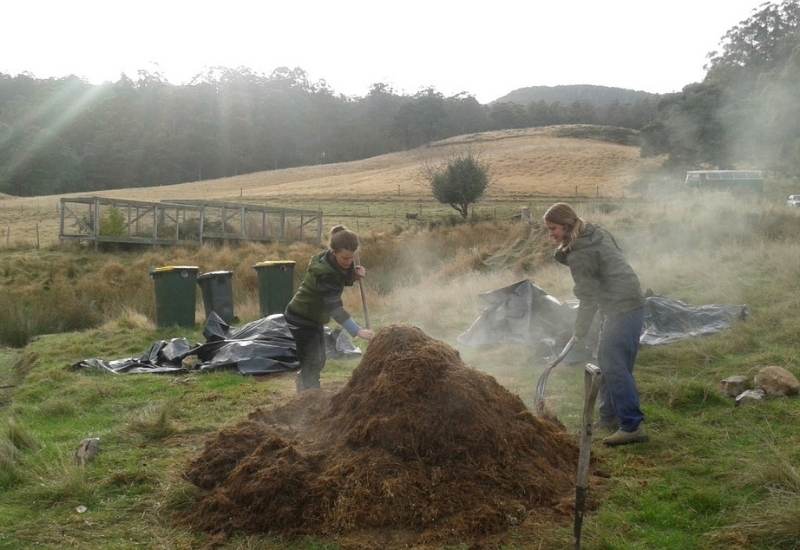
This is the most common way to compost, and it is also the fastest way to go from raw matter to finished compost. It is the most labour intensive but very rewarding.
There are many small yard-sized composters on the market, but you can also make it in a homemade wood box or wire cage, or you can simply pile everything together in one big heap.
Cold Composting
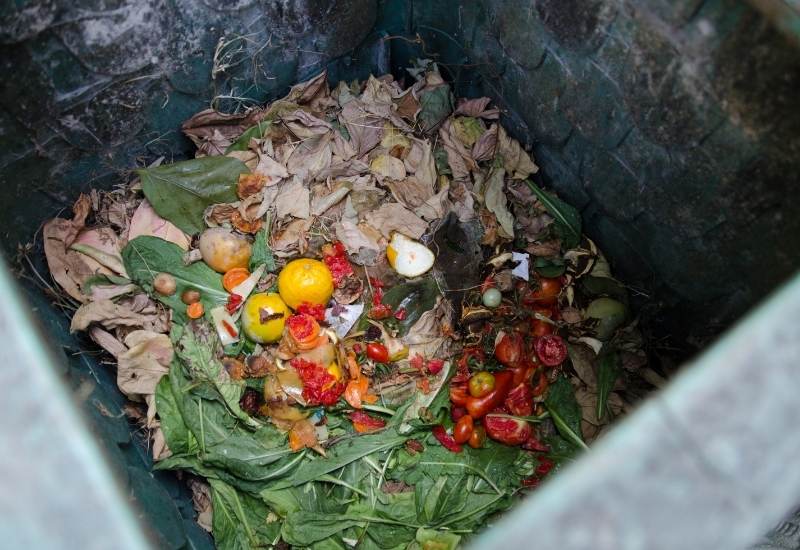
This is how our ancient ancestors composted, and it is probably the easiest method to do. Simply pile up organic matter into a pile as described above, wait a year or two, and add the finished product to your garden.
The downsides of cold composting are that it takes a long time, and the organic matter does not decompose as thoroughly as with hot composting.
Trench Composting
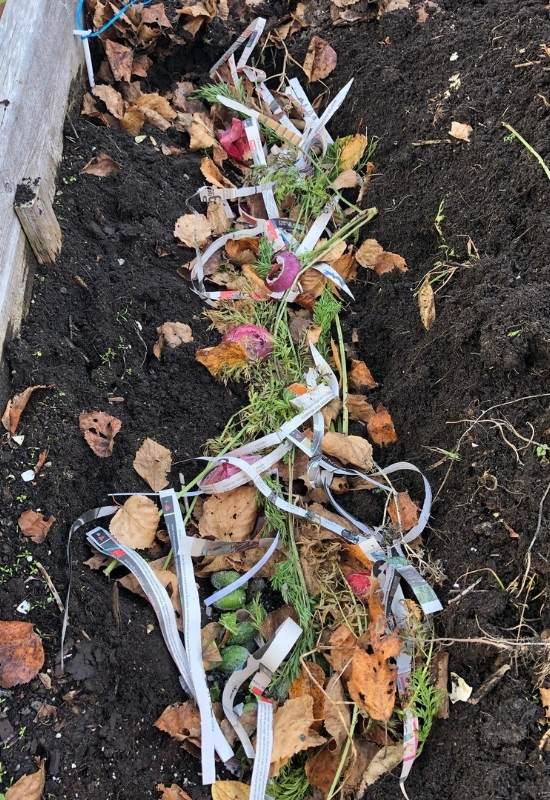
This is probably my favorite way to compost because it put the rotting matter directly into the soil where the natural microbes and earthworms can do their work right in the garden.
Trench composting is also beneficial because you do not need to have a certain amount of waste to get started, and you don’t have to worry as much about a proper ratio of green and brown matter.
Sheet Composting
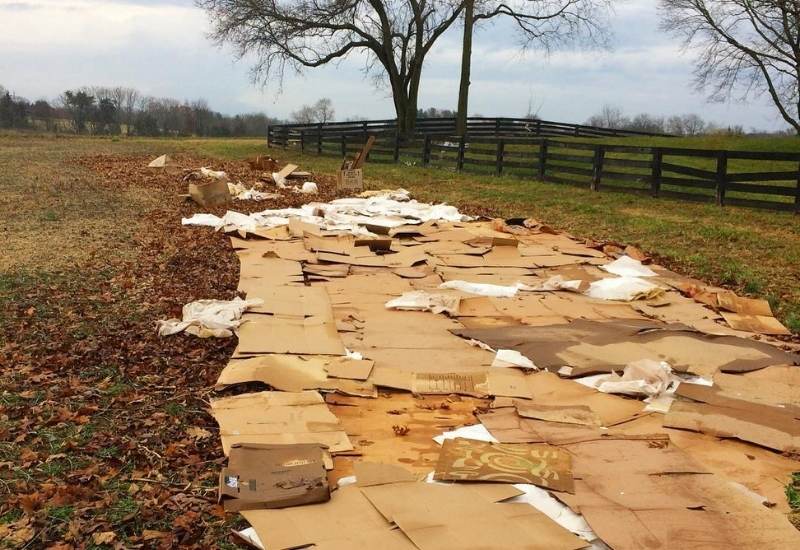
This is more commonly used with animal manure and bedding. Simply lay the barnyard waste on the soil, or till it into the top 8cm (6inches), and let it decompose.
Make sure to wait at least 120 days for harmful pathogens to die before planting anything in that spot.
Sheet composting is not a very practical method for kitchen or garden waste because the rotting vegetable matter would become a stinky, yucky mess on top of the garden which is neither sightly nor practical.
Vermicompost
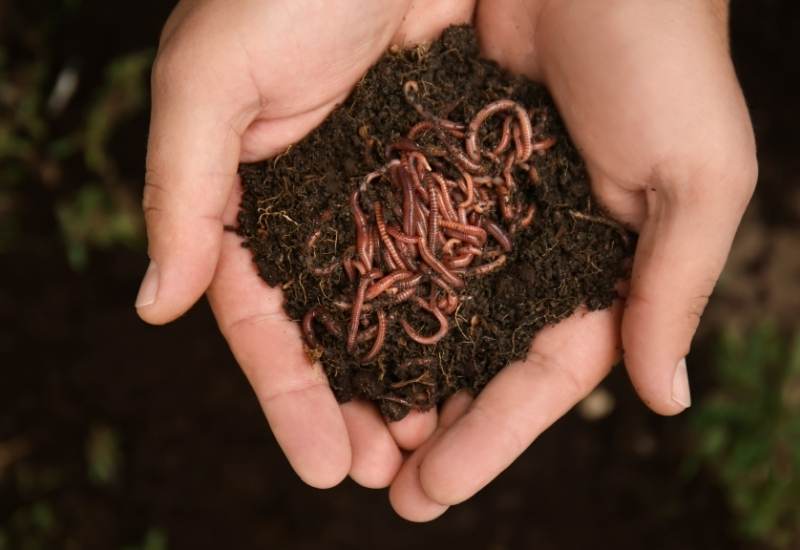
Vermicomposting is the practice of letting worms quickly decompose your food waste.
There are countless ways to build or buy vermicomposters that fit easily in a small garden (or even indoors if you are up for that).
Why Are Somethings Bad For The Compost?
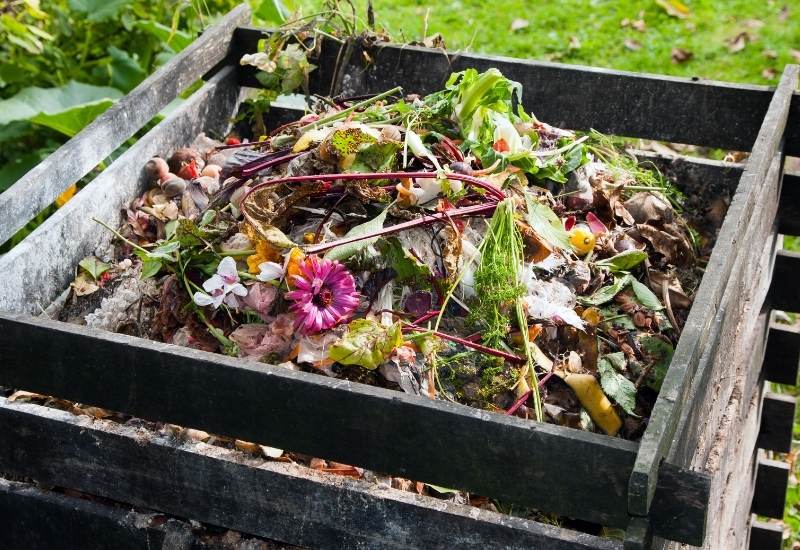
While most organic matter will decompose, some things will not break down as well and interfere with how the rest of the pile composts.
Also, other things can introduce pathogens or other harmful substances that can contaminate the soil, water, or even the food you are growing.
Another thing to watch out for is anything that will attract unwanted critters such as mice, rats, raccoons, or stray dogs.
What NOT To Put In Compost
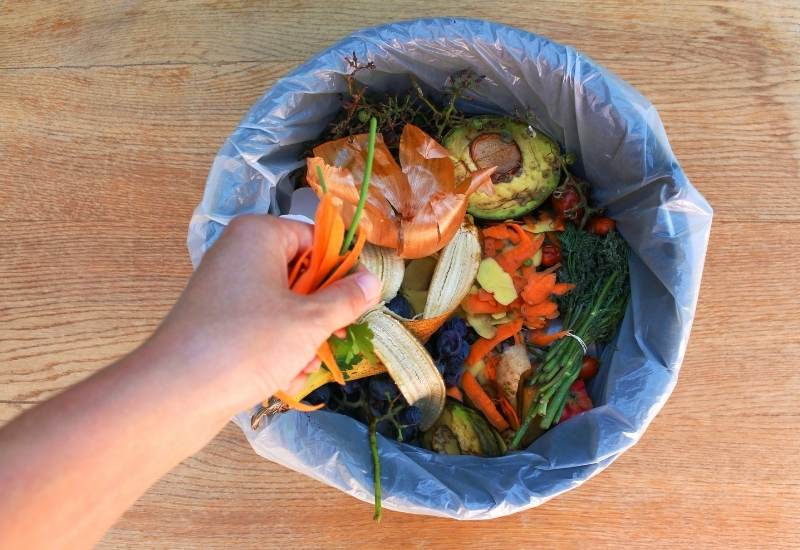
No matter which composting method you use, there are some items that you should never put in your compost.
As a general rule, avoid everything that is not organic (naturally occurring in nature) or that is not decomposable or biodegradable.
But there are a surprising number of things that are best avoided when composting, such as:
1. Chemicals
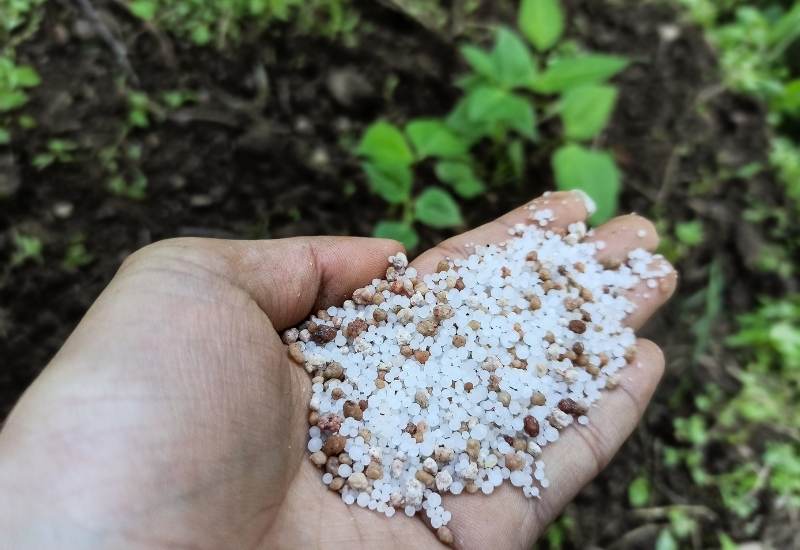
Avoid anything that could contain chemicals such as fertilizers, herbicides, or pesticides. These products have no place in the garden.
The same goes for household chemicals like cleaners, non-organic soaps, automotive products, and other potentially harmful substances.
2. Plastics
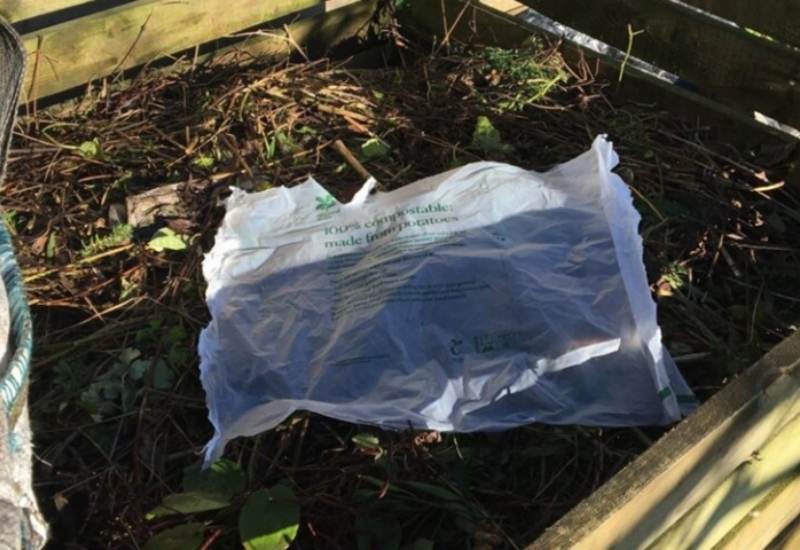
Plastics are not biodegradable and will not naturally decompose. Instead, they will stay intact in your compost and enter your garden where they can leach harmful substances and will never go away.
A single plastic bag can take over 1,000 years to break down. This is not something you want to put into your garden.
There are a surprising number of common, everyday things that you might not know contain plastic, and we will discuss more of them below.
3. Dog And Cat Poop
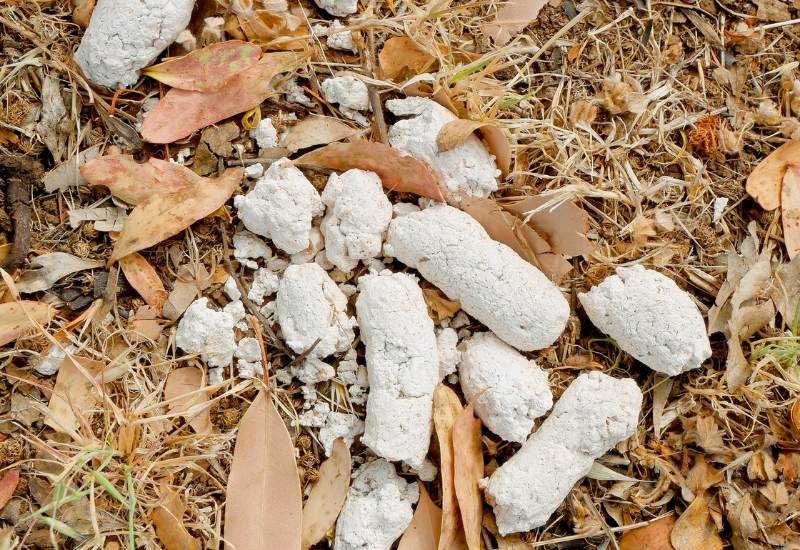
While some animal manure is great for the compost, feces, and urine from non-herbivores should never be put in the compost. Dog and cat poop contain pathogens and parasites that can be very dangerous for people and animals.
In most cases, a compost pile will not get hot enough to kill the harmful pathogens which would then end up in the soil.
If you are looking for something to do with all the poop, there are pet waste composted available that might interest you.
4. Human Feces
Like dog and cat poop, human feces have no place in the compost for much the same reasons. If you want to compost your own waste, get a certified composting toilet that does the job safely.
Even still, properly composted human waste is better left for the flowers and not the vegetable garden.
5. Citrus Peels
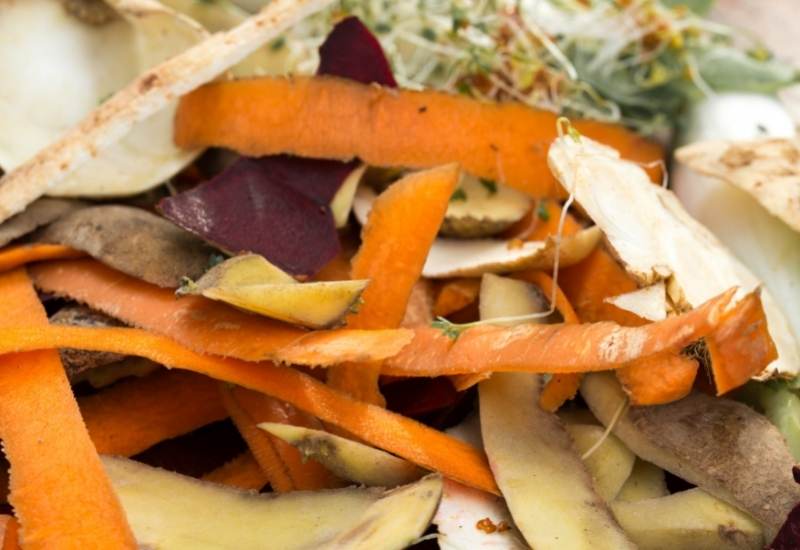
I have always added citrus peels to my compost, but then again, we do not eat that many oranges. In small quantities, citrus is perfectly fine in the compost but it can cause problems in large quantities.
Natural chemicals in citrus peels can affect the pH of your compost, and they can also kill worms and soil microorganisms.
Also, citrus peels take a surprisingly long time to break down.
Avoid large quantities of citrus peels if possible.
6. Some Tea Bags
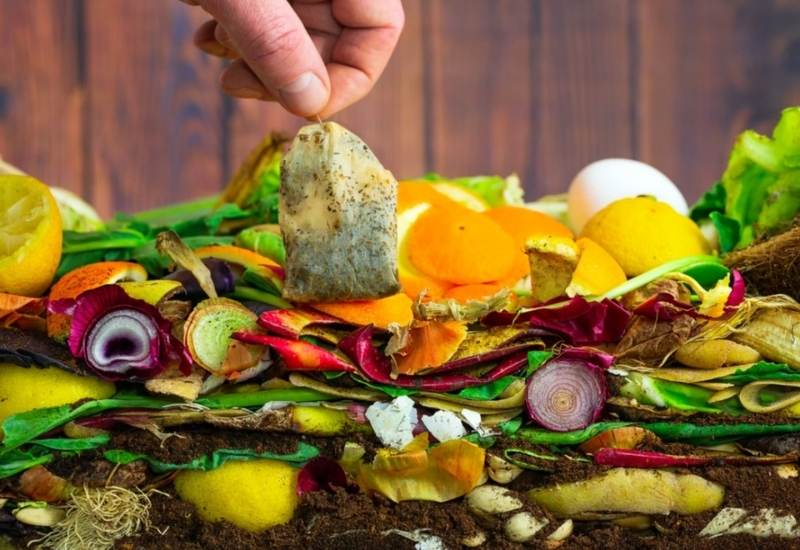
Many tea bags are made from biodegradable material. However, there are still a few companies that use plastic bags and these should never be used in the compost.
Most teas will say if the bags are compostable are not. If in doubt, empty the used tea leaves into the compost and throw away the bag.
Many tea bags also contain strings, tags, and tiny staples. These are generally all fine in the compost and they will quickly disappear as the pile heats up.
7. Bread And Baked Goods
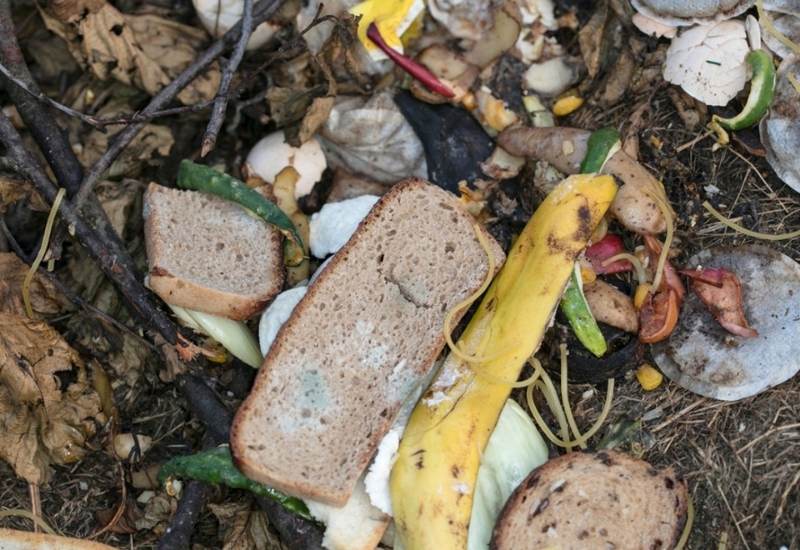
While these are fine in moderation, too much bread or baked goods can attract rodents and other animals.
Plain, dry bread is totally fine but overly sweet treats (such as cakes, pastries, and others) contain foods that critters find as delicious as we do.
8. Dairy Products
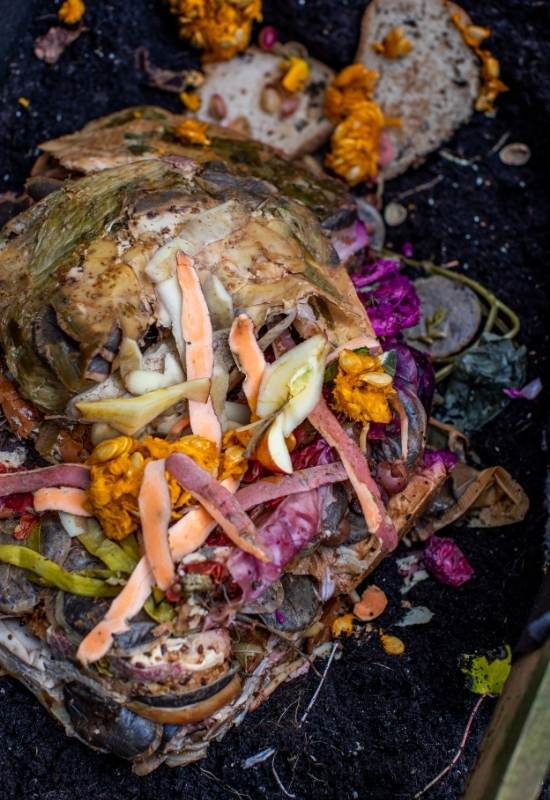
Dairy products, such as milk, cheese, butter, or yogurt will also attract insects and rodents and can introduce undesirable fats that won’t decompose properly.
10. Rice
Most sources say not to compost rice as it can impede decomposition by clumping, attracting rodents, and growing harmful bacteria.
And this is true if you put lots of rice in a poorly composting pile.
However, most of us don’t have that much extra rice left over from a meal so it won’t become a problem, and the bacteria will be killed if a pile gets about hot enough, or if a cold compost heap sits for more than 120 days.
11. Diseased or insect-infested plants
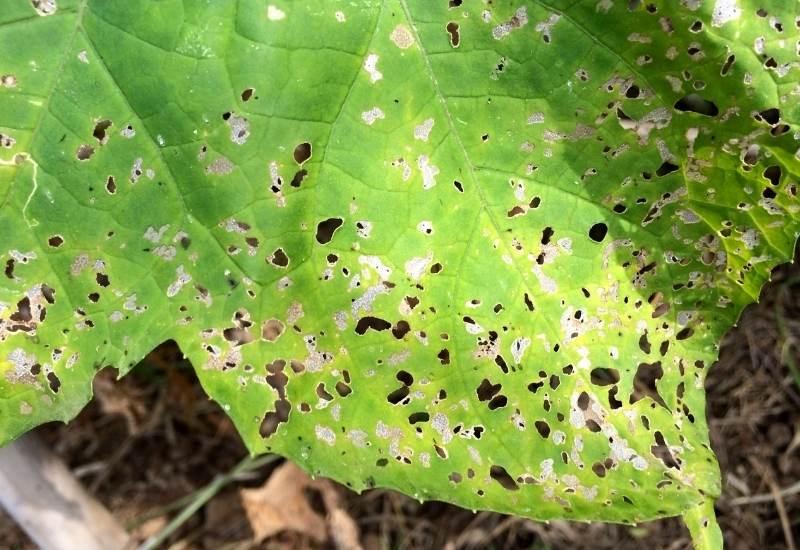
If you are unfortunate enough to have your garden infected by bacteria, or fungi, do not add the diseased plants to the compost.
Many of the diseases can survive the composting process and will reinfect the garden when the compost is spread around the plants.
12. Hay
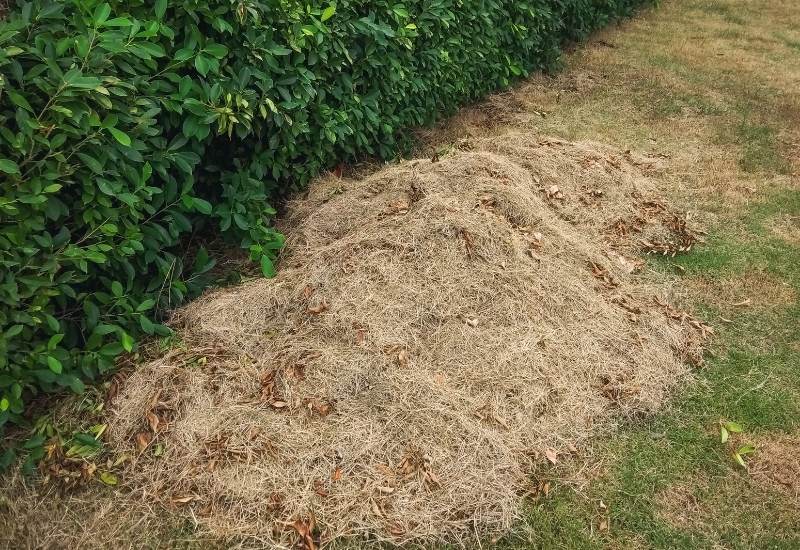
Straw is a great carbon source for your compost, but hay is not the same thing. Straw is the chaff left from grain crops while hay is grass that has been cut and dried at its peak nutrition.
Hay contains a variety of grass and weed seeds that can survive composting and cause lots of havoc when they germinate in the spring.
13. Onions And Garlic
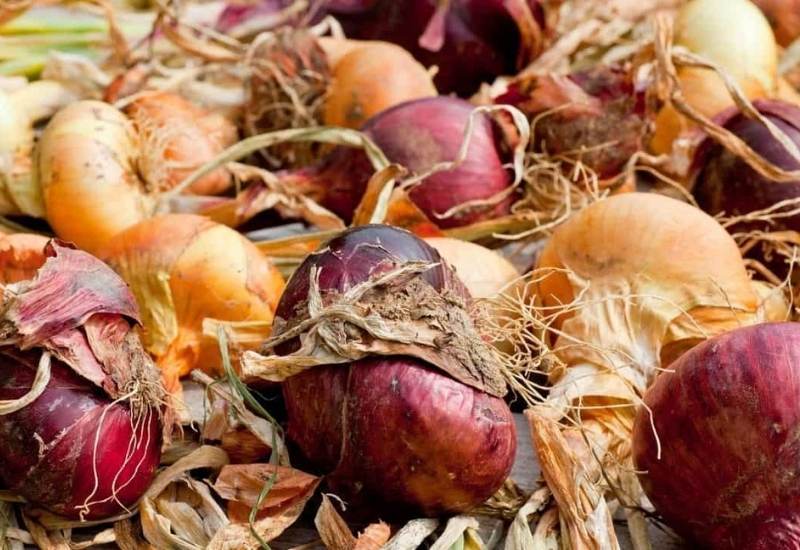
Again, onions and garlic in large concentrations can cause problems in the compost, but the average quantity of peels that a home produces can safely go in the bin.
The problem with compost is that we are not the only ones who find alliums repellent. Onions and garlic are natural insecticides and a large quantity of them can keep good bugs and earthworms out of the pile.
14. Glossy Paper
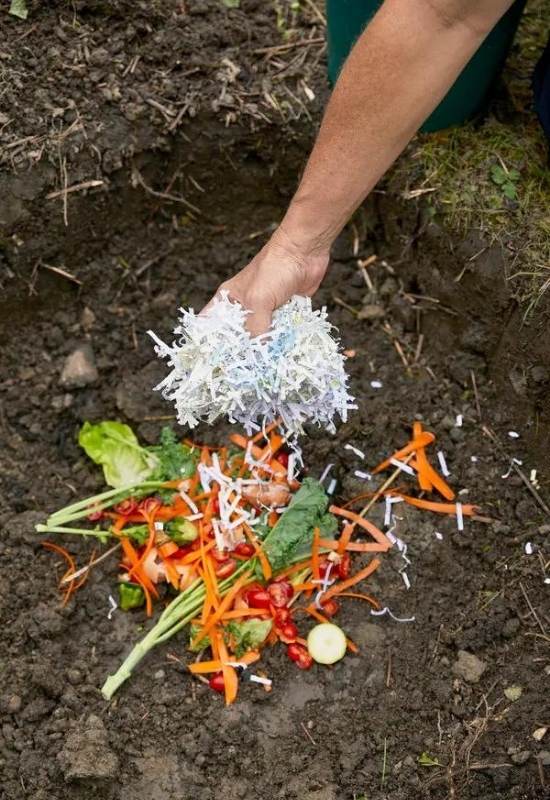
While most paper is an excellent carbon source for the garden, glossy paper is often coated in plastic that will not break down and has no place in the garden.
Paper with color ink (though many newspapers are starting to use soy-based inks) or lots of marker ink should also be avoided.
15. Produce Stickers
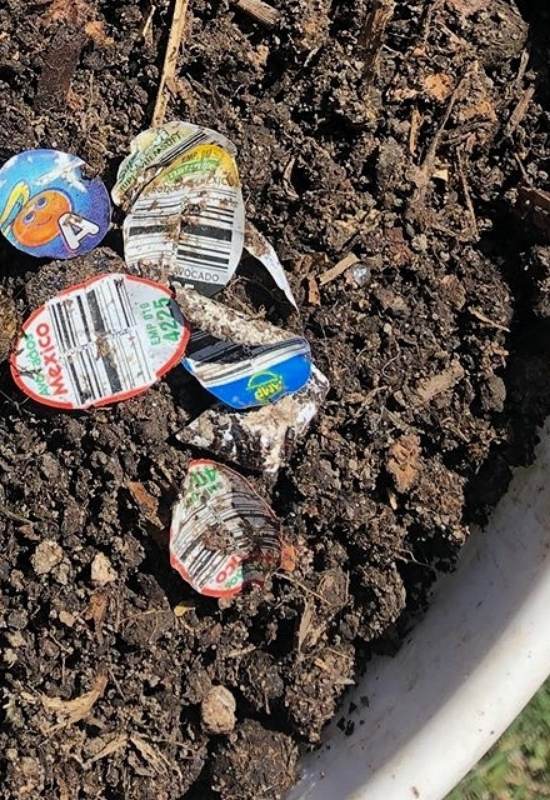
Despite the fact that the stickers on fruits and vegetables are edible, they are made from plastic and will not decompose.
16. Meat And Fish
Do not put meat, fish, bones, or fat in the compost. It will attract animals and the smell of rotting meat is never a good thing. Also, the temperature will not be sufficient to kill harmful bacteria.
17. Deceased Animals
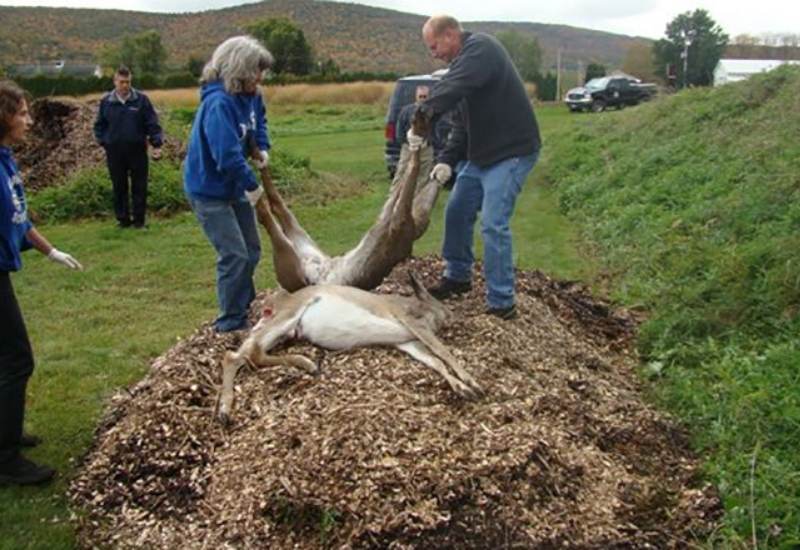
If you have livestock or other animals, you will have to deal with their death at some point. The compost bin is not the proper way to dispose of animal carcasses.
Some large agricultural operations, such as chicken farms, will compost carcasses, but they have specialized equipment in very controlled environments that are extremely difficult to replicate in a home garden environment.
18. Ash From Coal Fires
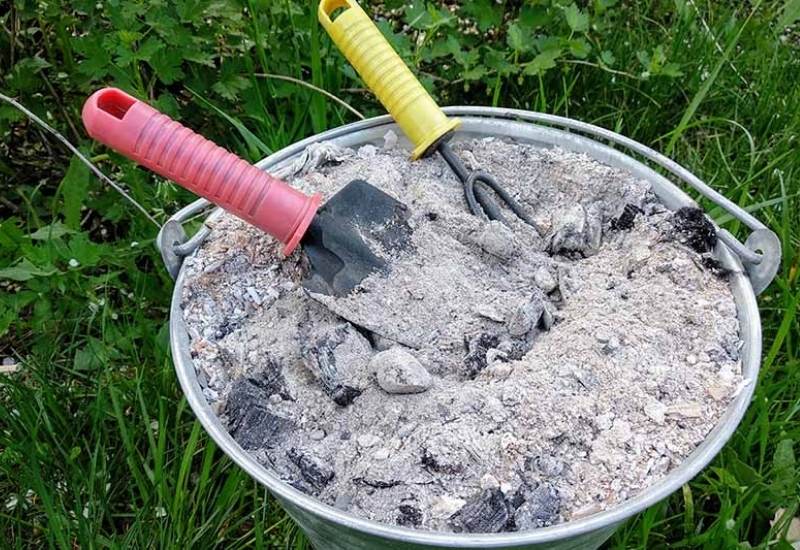
BBQ briquets are often treated with chemicals that can be harmful to you and your plants. Also, coal ash will be very high in sulfur which can seriously affect the pH of the pile.
Note: Ash from wood fires can be added in moderation as it will also modify the pH.
19. Treated Wood
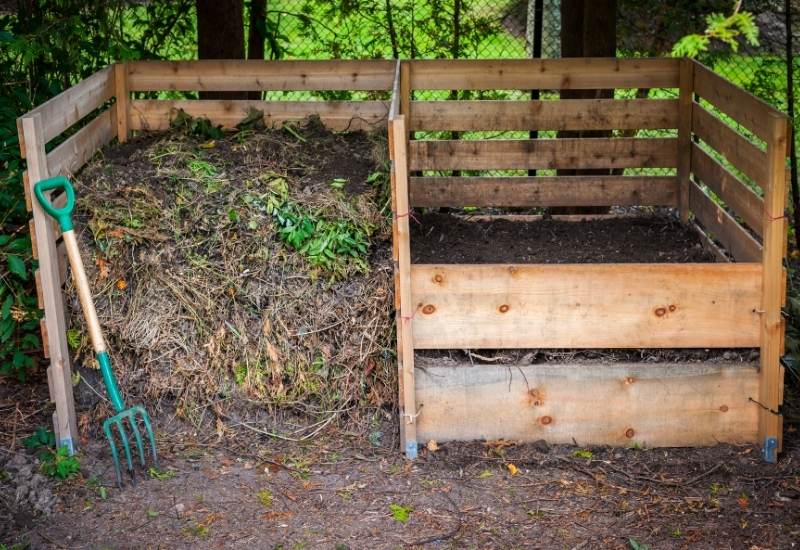
Treated wood is pressure soaked extremely dangerous chemicals. These chemicals are known to cause cancer and other serious health concerns and should never be put in the garden in any manner.
They will also inhibit plant growth. The same goes for wood that is painted, stained, or varnished.
20. Large branches or pieces of wood
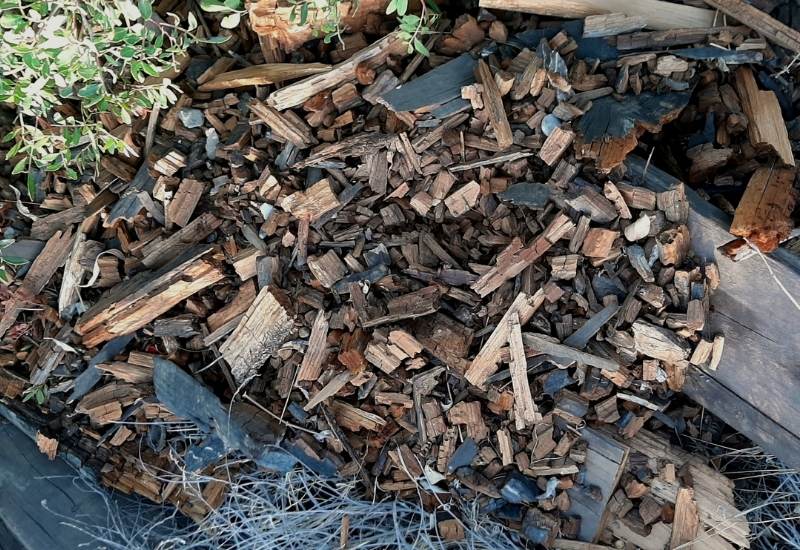
Large pieces of wood such as logs, branches, or lumber take a very long time to break down and delay when your compost will be finished.
Wood that is too large for the compost can still be incorporated into the garden as borders, landscaping, or hugelkultur.
21. Feminine Hygiene Products
Convention hygiene products are made from plastic and won’t compost. Nature products may be compostable but they can grow harmful pathogens that might survive the composting process.
22. Diapers
Similar to hygiene products, diapers are often made of plastic. Even reusable diapers have plasticized coatings to stop leaking, not to mention you should never add human feces or urine to the compost.
23. Oil
Large quantities of oil can attract pests and interfere with composting.
24. Invasive Plants
Most of our gardens are invaded by species that are not natural to our area and some can unbalance our delicate ecosystems.
Most counties or municipalities have lists of invasive plants that are not allowed.
These should not be put in the compost on the chance that weed seeds will survive and reinfest your garden.
25. Walnuts

Walnuts contain juglone, which is a naturally occurring chemical that can cause leaves to yellow and wilt, and even kill plants in high concentrations.
All walnuts have juglone but black walnut have the highest levels.
26. Fabric
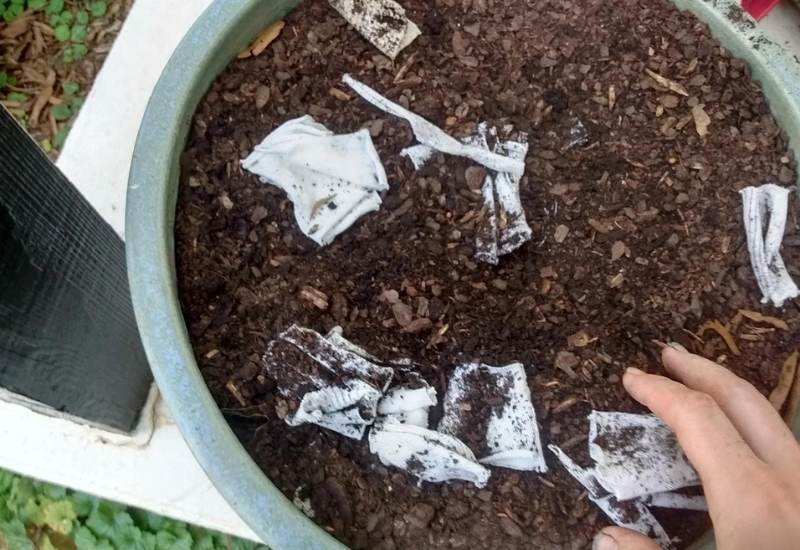
Be careful which fabric you add to the compost. Most fabric these days contains dyes, chemicals, or polyester which should not be composted.
However, raw organic fabric is a good source of carbon for the compost.
27. Dryer Lint
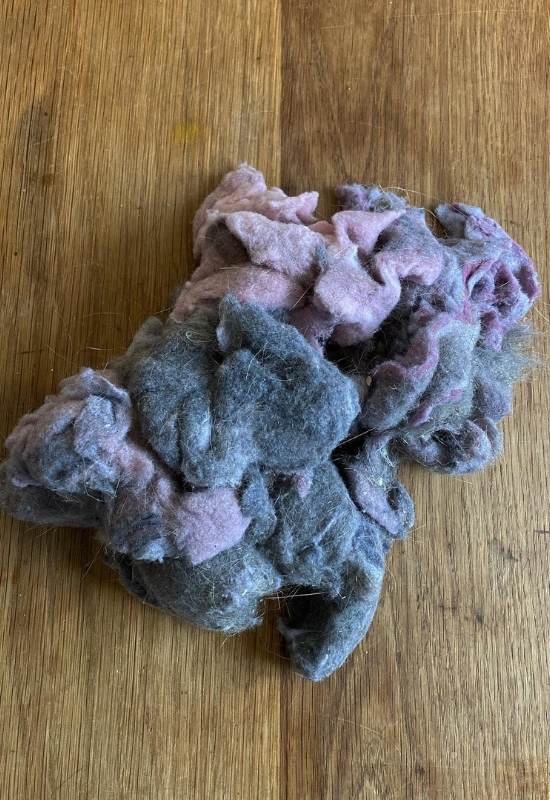
This is a matter of contention amongst gardeners. While dryer lint will compost nicely, it often contains small polyester or other plastic fibres.
28. Food Packaging
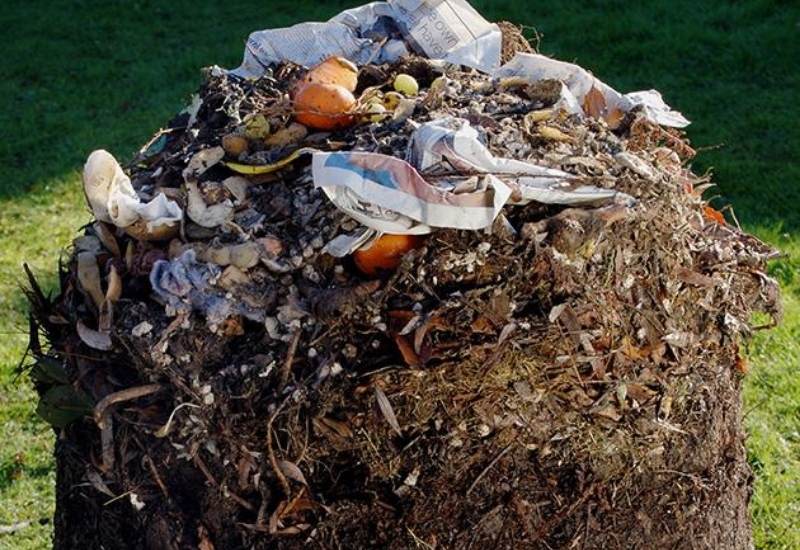
Most food packaging is considered “food grade” yet most of it is made from plastic or some plastic-derived substance and should not be composted.
29. Coated Cardboard
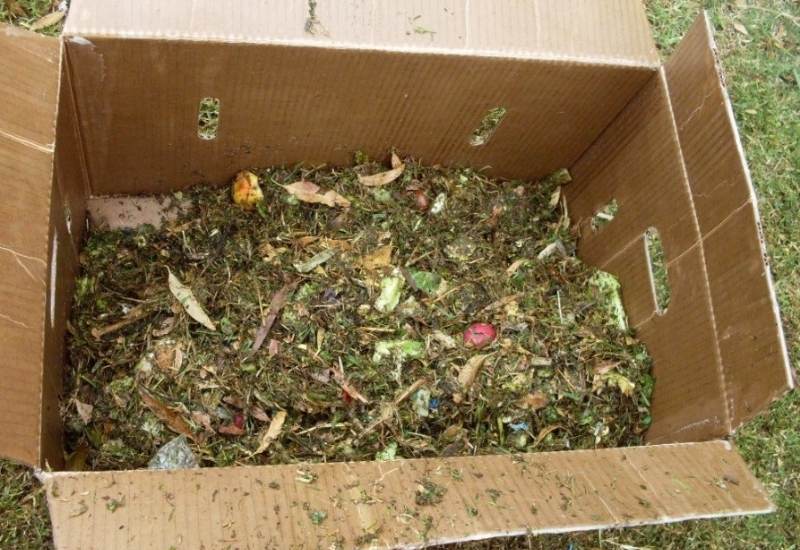
A lot of cardboard is coasted with resin or plastic to keep it semi-water repellent. While raw cardboard is a carbon source (once any tape is removed) the coasted stuff will not break down the same and can potentially leach.
30. Biodegradable Products
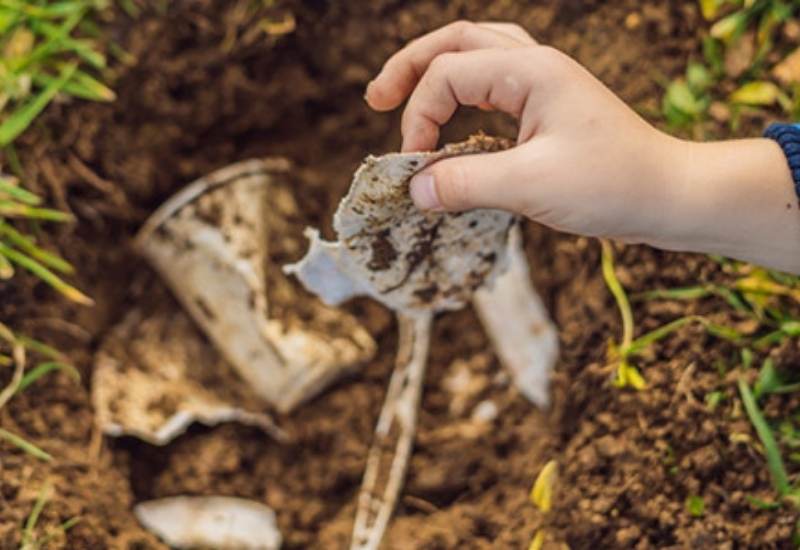
Most biodegradable products are compostable, but only at large composting facilities and will not break down in the home compost.
If you want to add a biodegradable product, make sure that it is labeled as compostable.
31. Grass Clippings From Unknown Sources
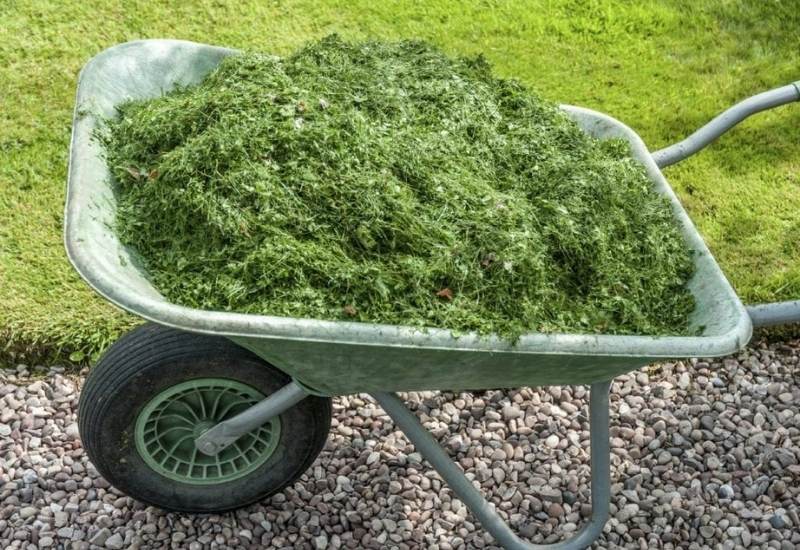
If someone offers to give you grass clippings for your compost, use them with caution.
Unfortunately, many people use chemical fertilizers and pesticides on their lawns and you don’t want these in the compost.
32. Cigarette Butts
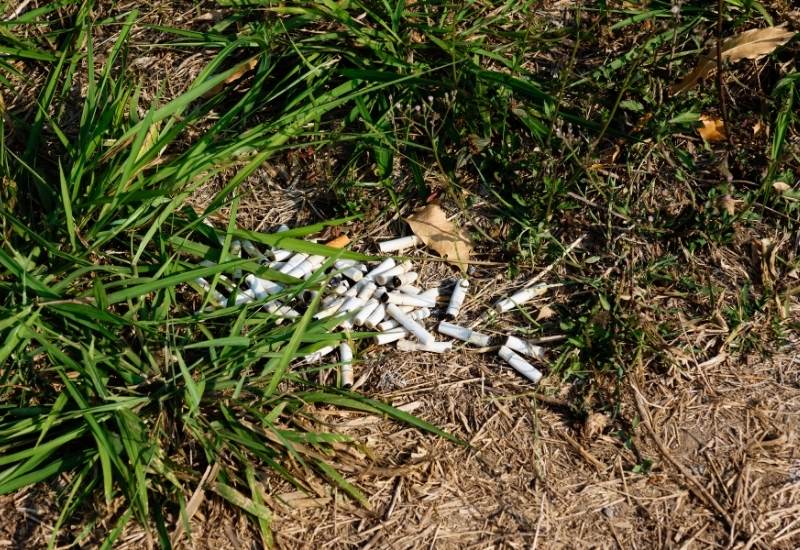
Pure tobacco is just a plant that will compost well. However, cigarettes are made from plastic and are full of extremely harmful.
33. Vacuum Dust
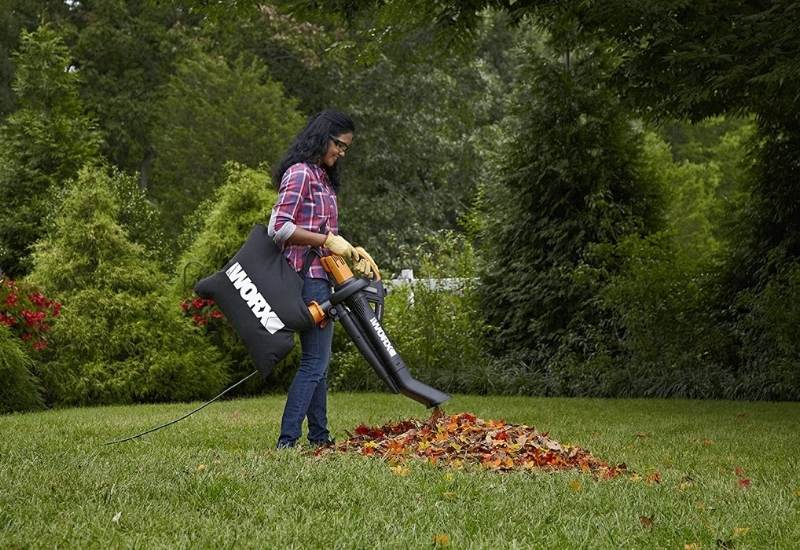
Vacuums will pick up all sorts of things, including small pieces of plastic or other non-natural products.
This is especially true if you have carpets that are often made of synthetic materials.
34. Leather
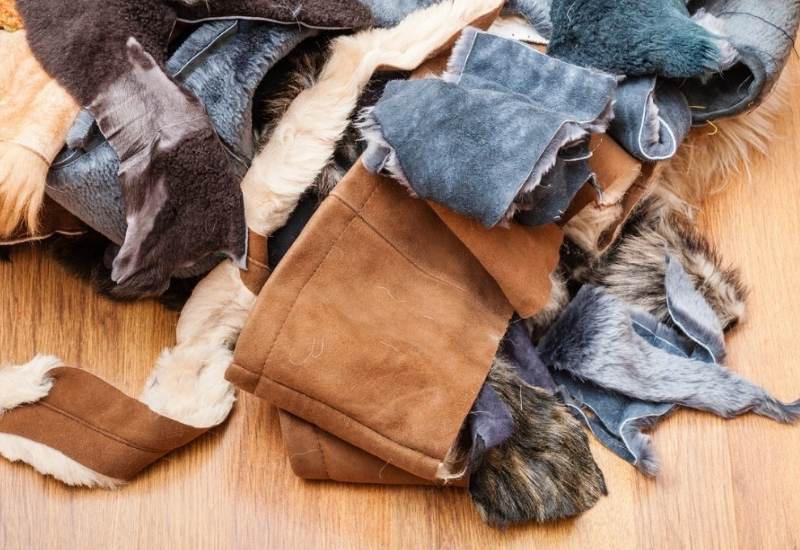
Leather is a very durable product, and its life is often extended with chemicals.
Not only will leather take a very long time to break down but it can leach chemicals while it does.
Some Waste Has No Place In The Composter
Even though the list above is very long, composting is a very simple process that should be a pleasure for experienced and amateur gardeners alike. I hope this list has given you enough information that you can safely and easily start your own compost, and be rewarded with beautiful rich humus for your flowers and vegetables.

Written By
Amber Noyes
Amber Noyes was born and raised in a suburban California town, San Mateo. She holds a master’s degree in horticulture from the University of California as well as a BS in Biology from the University of San Francisco. With experience working on an organic farm, water conservation research, farmers’ markets, and plant nursery, she understands what makes plants thrive and how we can better understand the connection between microclimate and plant health. When she’s not on the land, Amber loves informing people of new ideas/things related to gardening, especially organic gardening, houseplants, and growing plants in a small space.

I have 20 gallons of homemade fruit wine that has turned to vinegar. Can I put it in my compost?
I wouldn’t because anerobic fermentation is not great for compost, and the change in PH or any alcohol could damage the beneficial microbes in your compost.
I don’t think it would permanently damage your compost heap though. Just wouldn’t do much good for ya.